

Directed by: Don Chaffey
Written by: Malcolm Marmorstein from a
story by S.S. Field
Music by: Joel Hirschhorn, Al Kasha &
Irwin
Kostal
Released on: November 3, 1977
Running Time: 128 minutes
Budget: $ million
Box-Office: $ million in the U.S., $ million
worldwide ($18.4 million in U.S. rentals)
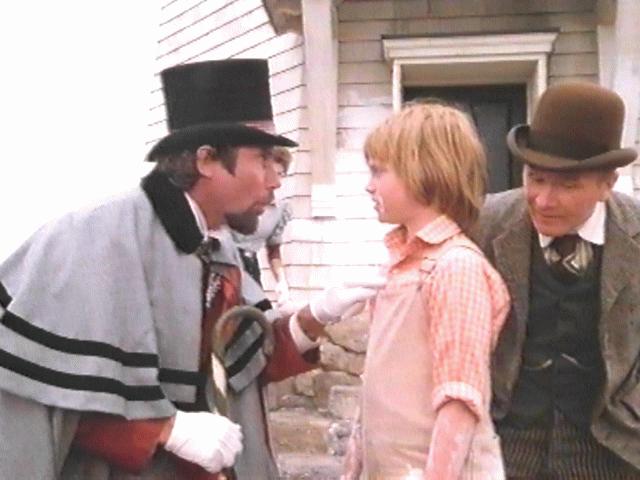 |
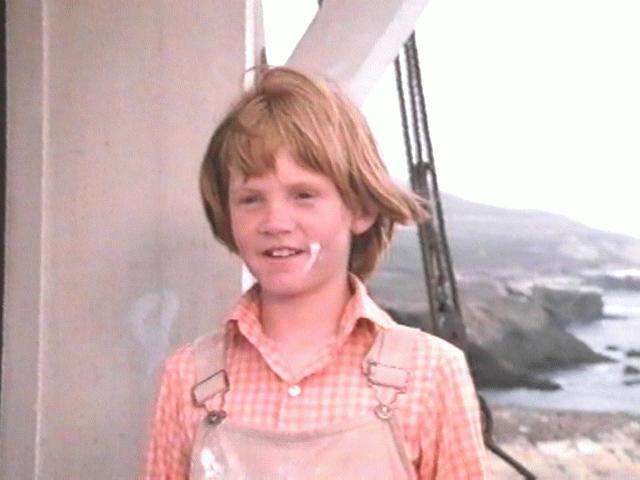 |
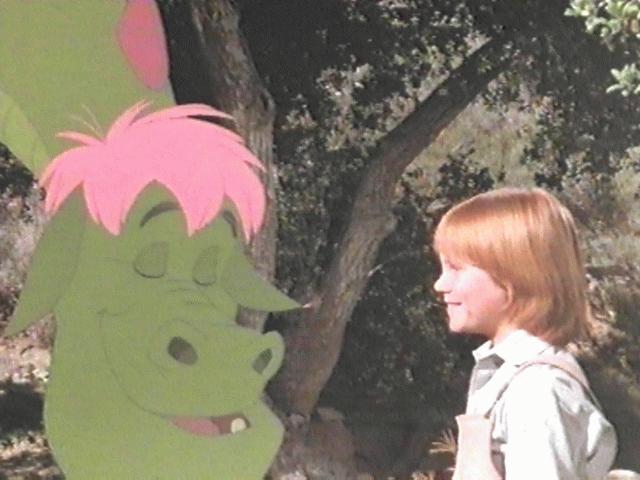 |
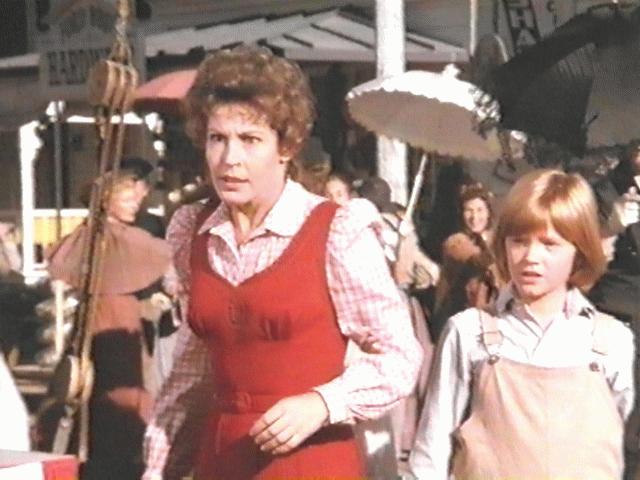 |
Pete... Sean Marshall
Elliot... Charlie Callas
Nora... Helen Reddy
Dr. Terminus... Jim Dale
Lampie... Mickey Rooney
Hoagy... Red Buttons
Lena Gogan... Shelley Winters
Miss Taylor... Jane Kean
The Mayor... Jim Backus
Merle... Charles Tyner
Willie... Jeff Conaway
Grover... Gary Morgan
Paul... Cal Bartlett
Captain... Walter Barnes
![]() Director Don Chaffey is most famous for his
work on TV series such as Charlie's Angels, Fantasy Island,
MacGiveror
Mission:
Impossible.
Director Don Chaffey is most famous for his
work on TV series such as Charlie's Angels, Fantasy Island,
MacGiveror
Mission:
Impossible.
![]()

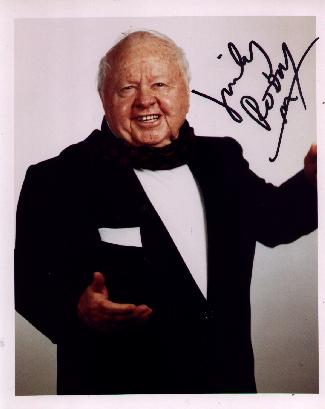 With
parents who were actors, it comes as no surprise that the young Joe Yule
Jr. (5'3" Mickey Rooney) made his debut on the stage at the age of only
15 months. He became well known for a series of some 50 silent comedies
between 1927 and 1933 in which he played Mickey McGuire, a comic-strip
character. In 1934 he was signed to MGM. At Mrs. Lawlor's School for Professional
Children he first met Judy Garland, whom he would play against in several
movies in the future, including some of the fifteen movies about Andy Hardy.
He gave a memorable performance as Puck in A Midsummer Night's Dream
(1935). With movies like The Adventures of Huckleberry Finn (1939)
and National Velvet (1944) he reached the peak of his career during
WWII. He was drafter during the war, and when he returned to Hollywood,
his fame and box-office draw had significantly decreased. Just like other
child stars he found it difficult to get a breakthrough as an adault actor.
After Summer Holiday (1948) his career went downwards and the 1950s
for him became a string of not-so-successful movies. He got his own TV
show, "The Mickey Rooney Show" (1954) and entered the nightclubs and theatres
again in the 1960s. In 1983, following 60 years as an actor, he received
the 'Lifetime Achievment Oscar'. Still active -both professionally
and personally!-, he has tied the knots 8 times, including with then newcomer
Ava Gardner in the early 40s.
With
parents who were actors, it comes as no surprise that the young Joe Yule
Jr. (5'3" Mickey Rooney) made his debut on the stage at the age of only
15 months. He became well known for a series of some 50 silent comedies
between 1927 and 1933 in which he played Mickey McGuire, a comic-strip
character. In 1934 he was signed to MGM. At Mrs. Lawlor's School for Professional
Children he first met Judy Garland, whom he would play against in several
movies in the future, including some of the fifteen movies about Andy Hardy.
He gave a memorable performance as Puck in A Midsummer Night's Dream
(1935). With movies like The Adventures of Huckleberry Finn (1939)
and National Velvet (1944) he reached the peak of his career during
WWII. He was drafter during the war, and when he returned to Hollywood,
his fame and box-office draw had significantly decreased. Just like other
child stars he found it difficult to get a breakthrough as an adault actor.
After Summer Holiday (1948) his career went downwards and the 1950s
for him became a string of not-so-successful movies. He got his own TV
show, "The Mickey Rooney Show" (1954) and entered the nightclubs and theatres
again in the 1960s. In 1983, following 60 years as an actor, he received
the 'Lifetime Achievment Oscar'. Still active -both professionally
and personally!-, he has tied the knots 8 times, including with then newcomer
Ava Gardner in the early 40s.
![]()
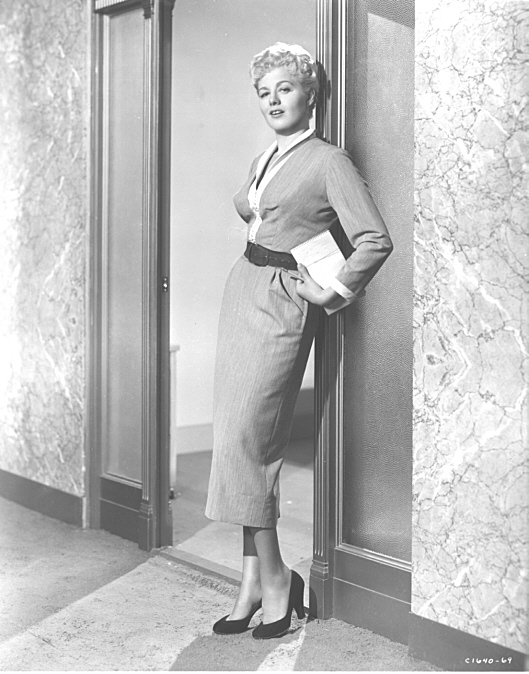
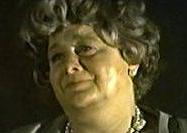 This
one-time roommate of Marilyn Monroe went on to carve out her own considerable
niche in Hollywood. Winters has won two best supporting Oscars for her
portrayal of Mrs. Van Daan in The Diary of Anne Frank (1959) and
for her role as Rose-Ann D'Arcey in A Patch of Blue (1965). She
donated her Anne Frank Oscar to the Anne Frank House in Amsterdam, where
it is proudly displayed. She was also nominated for an Oscar as best actress
for A Place in the Sun (1951) and for the disaster flick, The
Poseidon Adventure (1972). She continues to work in both the small
and large screen appearing as a regular on Roseanne (1991–96, as
the star's grandmother) and in films ranging from the campy (The Purple
People Eater, 1988) to the serious (The Portrait of a Lady,
1996). Her career includes 130 small and big screen movie appearances over
55 years. Shelley wrote two autobiographies: "Shelley also known as Shirley"
(1980) and "Shelley II" (1989). In a Mae West but down-to-earth way,
she made several acidly funny quotes, including: "In Hollywood, all the
marriages are happy. It's trying to live together afterwards that causes
all the problems.", or "The best way to find out about a man is to have
lunch with his ex-wife"!
This
one-time roommate of Marilyn Monroe went on to carve out her own considerable
niche in Hollywood. Winters has won two best supporting Oscars for her
portrayal of Mrs. Van Daan in The Diary of Anne Frank (1959) and
for her role as Rose-Ann D'Arcey in A Patch of Blue (1965). She
donated her Anne Frank Oscar to the Anne Frank House in Amsterdam, where
it is proudly displayed. She was also nominated for an Oscar as best actress
for A Place in the Sun (1951) and for the disaster flick, The
Poseidon Adventure (1972). She continues to work in both the small
and large screen appearing as a regular on Roseanne (1991–96, as
the star's grandmother) and in films ranging from the campy (The Purple
People Eater, 1988) to the serious (The Portrait of a Lady,
1996). Her career includes 130 small and big screen movie appearances over
55 years. Shelley wrote two autobiographies: "Shelley also known as Shirley"
(1980) and "Shelley II" (1989). In a Mae West but down-to-earth way,
she made several acidly funny quotes, including: "In Hollywood, all the
marriages are happy. It's trying to live together afterwards that causes
all the problems.", or "The best way to find out about a man is to have
lunch with his ex-wife"!
![]() Pete's Dragon
was originally conceived as a live action only movie (like Harvey the
Invisible Rabbit). The invisibility was a way of keeping Elliott out
of the way animation wise. Finally after much screaming at Disney, the
decision was made to have Elliott appear at the finale of the movie for
about 1 1/2 minutes. Because the animated footage upstaged the rest of
the picture, more footage was added little by little. It was finally agreed
to have Elliott appear in 10 minutes of the movie. Of course, that final
number eventually grew to 20 minutes.
Pete's Dragon
was originally conceived as a live action only movie (like Harvey the
Invisible Rabbit). The invisibility was a way of keeping Elliott out
of the way animation wise. Finally after much screaming at Disney, the
decision was made to have Elliott appear at the finale of the movie for
about 1 1/2 minutes. Because the animated footage upstaged the rest of
the picture, more footage was added little by little. It was finally agreed
to have Elliott appear in 10 minutes of the movie. Of course, that final
number eventually grew to 20 minutes.
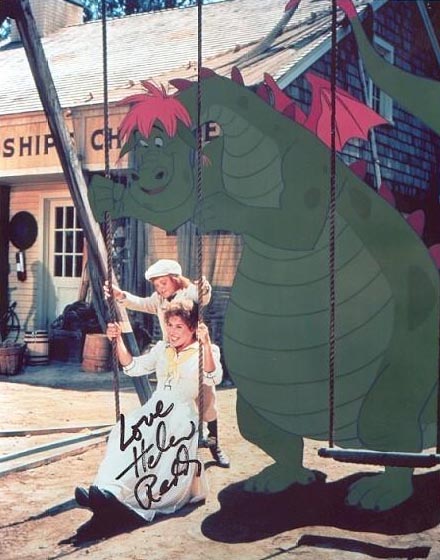
![]() Don Bluth's spokesperson detailed on the director's official site that
when he was asked to direct the animation of Pete's Dragon, "the
pressure of the Disney management and small budgets to do large projects
created some conflicts for [Don Bluth]. There was very little gratitude
for the effort made to get these pictures made with an untrained crew and
a few veterans. Plus, they were not really interested in bringing back
the production values of the old films. They were looking for more economy.
He only received complaints from upper management, that he had just barely
made the deadline or that he went over budget by 3 to 5%. When he started
on Pete's Dragon, there was 900 feet of animation planned (10 minutes).
It had an animation budget of $1.8 million. By the time we started animation,
the company wanted 1,800 feet of animation, but offered no increase in
the budget. The final cost of the animation was $1.895 million and Don
got criticised for going over budget, $95,000. The position does have a
lot of responsibility, but when you double the production requirements
and not give an inch on the budget, it's difficult when you get criticized.
At the time, this production was a tall order, requiring us to work 7 days
a week for the last 6 months of the project, to make sure the film was
ready for its Thankgiving release [in 1977]."
Don Bluth's spokesperson detailed on the director's official site that
when he was asked to direct the animation of Pete's Dragon, "the
pressure of the Disney management and small budgets to do large projects
created some conflicts for [Don Bluth]. There was very little gratitude
for the effort made to get these pictures made with an untrained crew and
a few veterans. Plus, they were not really interested in bringing back
the production values of the old films. They were looking for more economy.
He only received complaints from upper management, that he had just barely
made the deadline or that he went over budget by 3 to 5%. When he started
on Pete's Dragon, there was 900 feet of animation planned (10 minutes).
It had an animation budget of $1.8 million. By the time we started animation,
the company wanted 1,800 feet of animation, but offered no increase in
the budget. The final cost of the animation was $1.895 million and Don
got criticised for going over budget, $95,000. The position does have a
lot of responsibility, but when you double the production requirements
and not give an inch on the budget, it's difficult when you get criticized.
At the time, this production was a tall order, requiring us to work 7 days
a week for the last 6 months of the project, to make sure the film was
ready for its Thankgiving release [in 1977]."
![]() This Disney film
has a troubled history as far as the many different versions released over
the years. It originally ran 134 minutes. After its opening roadshow engagement,
it was cut down to 121 minutes. When it reached home video, it was time-compressed
and edited down to 105 minutes (with its signature song, "Candle On The
Water", cut out). When it was re-released to video some years later, it
was re-edited to the version now more commonly seen, 128 minutes, with
"Candle On The Water" restored. The 1984 theatrical re-issue was edited
to 104 minutes, and the TV version further cut to 92 minutes.
This Disney film
has a troubled history as far as the many different versions released over
the years. It originally ran 134 minutes. After its opening roadshow engagement,
it was cut down to 121 minutes. When it reached home video, it was time-compressed
and edited down to 105 minutes (with its signature song, "Candle On The
Water", cut out). When it was re-released to video some years later, it
was re-edited to the version now more commonly seen, 128 minutes, with
"Candle On The Water" restored. The 1984 theatrical re-issue was edited
to 104 minutes, and the TV version further cut to 92 minutes.
![]() Pete's Dragon
was nominated for Best Music and Best Song ("Candle In The Water") at the
1978 Academy Awards. It lost respectively to Jonathan Tunick's A
Little Night Music and Joseph Brooks' "You Light Up My Life".
Pete's Dragon
was nominated for Best Music and Best Song ("Candle In The Water") at the
1978 Academy Awards. It lost respectively to Jonathan Tunick's A
Little Night Music and Joseph Brooks' "You Light Up My Life".
![]() Though Pete's Dragon features some of the best songs in movie history,
the follow-up work by writers and composers Joel
Hirschhorn and Al Kasha remained low-profile. Conductor Irwin Kostal
(1911-1994) on the other hand worked on several other big projects for
Disney, including the 1982 recording of Fantasia,
Mary
Poppins (1964) and Mickey's
Christmas Carol (1983); he also worked on cult movies such as West
Side Story (1961) and The Sound of Music (1965).
Though Pete's Dragon features some of the best songs in movie history,
the follow-up work by writers and composers Joel
Hirschhorn and Al Kasha remained low-profile. Conductor Irwin Kostal
(1911-1994) on the other hand worked on several other big projects for
Disney, including the 1982 recording of Fantasia,
Mary
Poppins (1964) and Mickey's
Christmas Carol (1983); he also worked on cult movies such as West
Side Story (1961) and The Sound of Music (1965).
|
||||||||||||